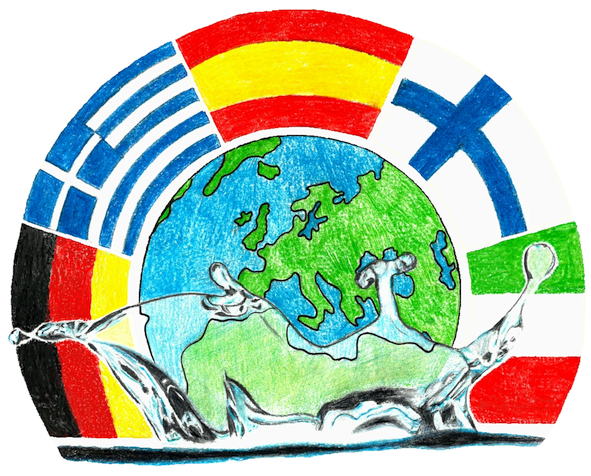Tourism and Sport (Module 2)
The 13th Gymnasium of Heraklion (Greece) is responsible for Module 2, “Tourism andSport”. This module focuses on the recreational function of water.
The students will analyse the importance of tourism on the water bodies near the participating schools. The project groups will explore the question what effects tourism has on the economy, the labour market and working conditions in the different regions. What impact does tourism have on the natural environment? These aspects should also be analysed in a historical context.
Key questions to explore the role of water sports in their region will be: What specific water sports are there? What is the club structure like? How have individual sports developed historically? What connecting function do water sports have in society and how does this influence tourism?
Collaboration with the respective local tourist board or other tourism organizations are being planned. The participants will create water sport arrangements for young tourists, which can subsequently be used for further exchange projects. The results will be incorporated into the app and the website and thus will be made available for anyone interested.
The students will also organise sports programs for the international project meetings. The activities should focus on the social and integrating function of sport so that the students will be able to learn to take sport as a chance to experience and express emotions and aggression in a controlled manner and to explore new ways of dealing with one another. Through this approach, they will become more aware of their own abilities and the consequences of their actions. During the planning process, our students will need to get in touch with clubs and organisations supporting the above-mentioned activities. In doing so, they will expand their ability to organise such events.
With the help of this module, the students should be able to
- organise and coordinate the research with external partners such as local sports clubs and organisations, but also tourism organisations and the local administration, to gain insight into the regional tourism sector through interviews with experts.
- work in multinational and multilingual teams.
- research, evaluate, process, and edit the information gained.
- summarise the relevant information for a digital presentation.
- use photo editing software to edit photos in a creative way (cf. module 1).
- work with text and photo editors to create appropriate learning and teaching materials (cf. module 1).
- discuss and exchange relevant information and organise the next stages in the working process.
- split complex tasks into smaller and simpler ones which can then be tackled by individuals or small teams.
- create a presentation with a meaningful structure and a good layout.
- develop a questionnaire aimed at interviewing sports clubs, tourism organisations and also tourists.
- analyse the questionnaire statistically and evaluate the result critically.
- organize a sports day for a larger group and work together with regional sports clubs and organisations. Integrative social forms should play a key role in the planning process of the sports day so that the students from the participating countries are encouraged to develop a team spirit.

